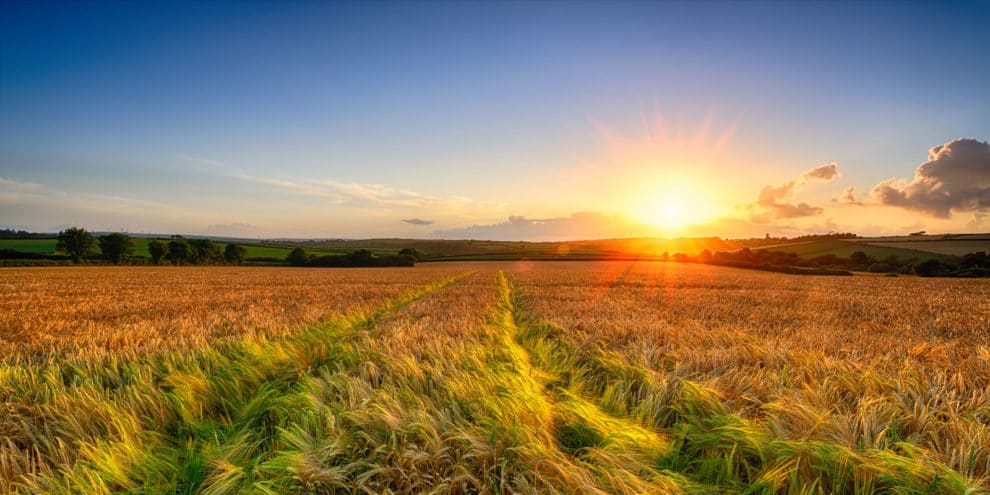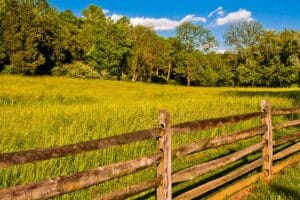Almost weekly people call me telling me they are looking to make their first rural land purchase. This article is meant to be a short primer on a bare minimum of things you need to know to get started with your land purchase.
- What do you want? What type of property are you looking for, and what is your intended use? You need to identify and be able to articulate your “Must Have’s” in a prospective property. Is your intention to purchase recreational property, a rural home site lot, production farmland, or investment grade timberland? Knowing what you want makes it easier to rule out properties that will not work for you.
- How will you pay for it? How much can you afford? If you are planning to pay cash for your property, determining your budget should be relatively easy. If you are planning to finance your land purchase, then you need to contact lenders that specialize in making rural land loans. Most traditional banks and credit unions will not finance more than 5 to 10 acres, so you need to know that from the start. A brief conversation with a land lender will arm you with the information you need to focus your property search. Most land lenders in our area are going to require 15% to 25% as a down-payment, so plan accordingly when considering your purchase.
- Consider working with a Buyer’s Agent. If you are new to the land buying process, you should consider working with a land broker that specializes in land transactions. Not all real estate agents are equally qualified to assist you with your purchase. Almost every land buyer benefits from having an experienced advocate who can assist them with locating suitable properties, asking the right questions, and using their network of land-related contacts to help with the many facets of making your land purchase. Many times the seller’s agent is working solely for the seller. If you feel uncomfortable or uncertain about your transaction, you should find a buyer’s agent to represent your interests.
When looking for a land agent to represent your interests, ask them a few questions to determine their level of competency and how well you get along with them. How many land transactions have they closed recently? Are they involved with the Realtors Land Institute? Have they earned the Accredited Land Consultant (ALC) designation? ALC’s have taken over 100 hours of land-related education and have proven track records of land sales that are reviewed by a committee of land brokers from around the nation. Those are a few criteria to help you select a broker to represent you when buying land for sale.
There are many more things to consider when making a land purchase. The land-buying process takes time. Educate yourself as much as possible on what land is selling for in your areas of interest. Talk to your land lender and use them as a resource on which land brokers in the area are trustworthy and good to work with. Ask your friends who own land what they like and don’t like about their property. You need to see a couple of tracts to compare and contrast what they offer. Asking questions and learning as much as you can from reputable sources will make your land buying process easier and a success.
This content may not be used or reproduced in any manner whatsoever, in part or in whole, without written permission of LANDTHINK. Use of this content without permission is a violation of federal copyright law. The articles, posts, comments, opinions and information provided by LANDTHINK are for informational and research purposes only and DOES NOT substitute or coincide with the advice of an attorney, accountant, real estate broker or any other licensed real estate professional. LANDTHINK strongly advises visitors and readers to seek their own professional guidance and advice related to buying, investing in or selling real estate.










I purchased undeveloped land in an off the Grid area. I knew where I wanted to be and what I would be up against. I wanted to start from scratch. I know many states and their counties have specific long range desires regarding what type of development and use of the land they prefer within their districts. How do you find our what their long range goals or intent really is when you’re not an insider? And the information you get is sketchy at best. How can you determine what to use your land for and what you should build to be able to stay while the area evolves. Even undeveloped land has possibilities. What resources are available to help you make a more informed decisions within county laws or where and who should one look to. Politicians come and go. Each has their own ideas regarding what to do with undeveloped land. But there is always one or more common goals. Besides populating it with tax payers.
Thanks for the interesting read for buying land. It’s good to know that you should try to determine your budget especially if you are planning to pay cash. Perhaps it could be good to understand different payment solutions for buying land, especially if it can determine what your budget is.
The only information I can find about land ownership in the US is that ANY OCCUPANCY OF A RESIDENCE with a mortgage COUNTS AS HOME OWNERSHIP even if it is a mobile home or Winnebago on a rented lot. If you separate the units sitting on LAND NOT OWNED from units sitting on LAND OWNDED BY THE OCCUPIER, you will get a very different home ownership rate, perhaps as low as 25%. This inclusion occurred after the mortgage collapse of 1990. This totally false and misleading impression of home ownership has an agenda that supports rentals.